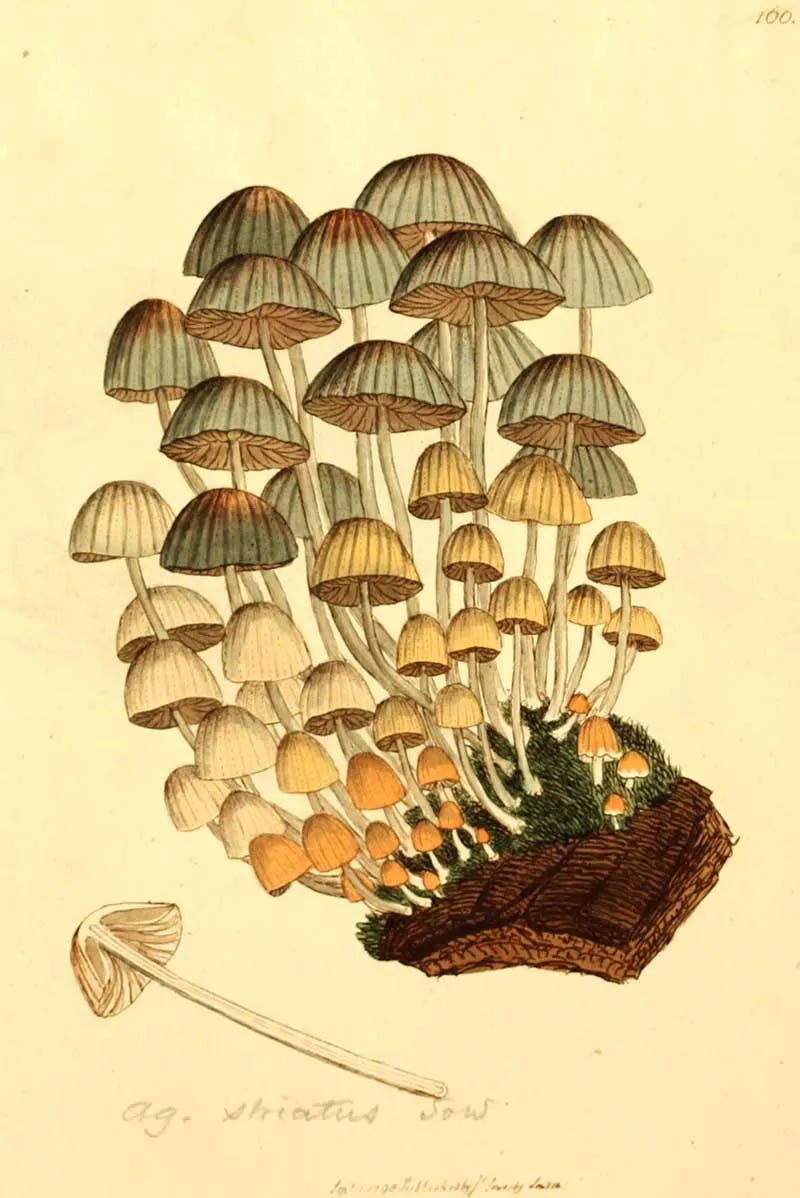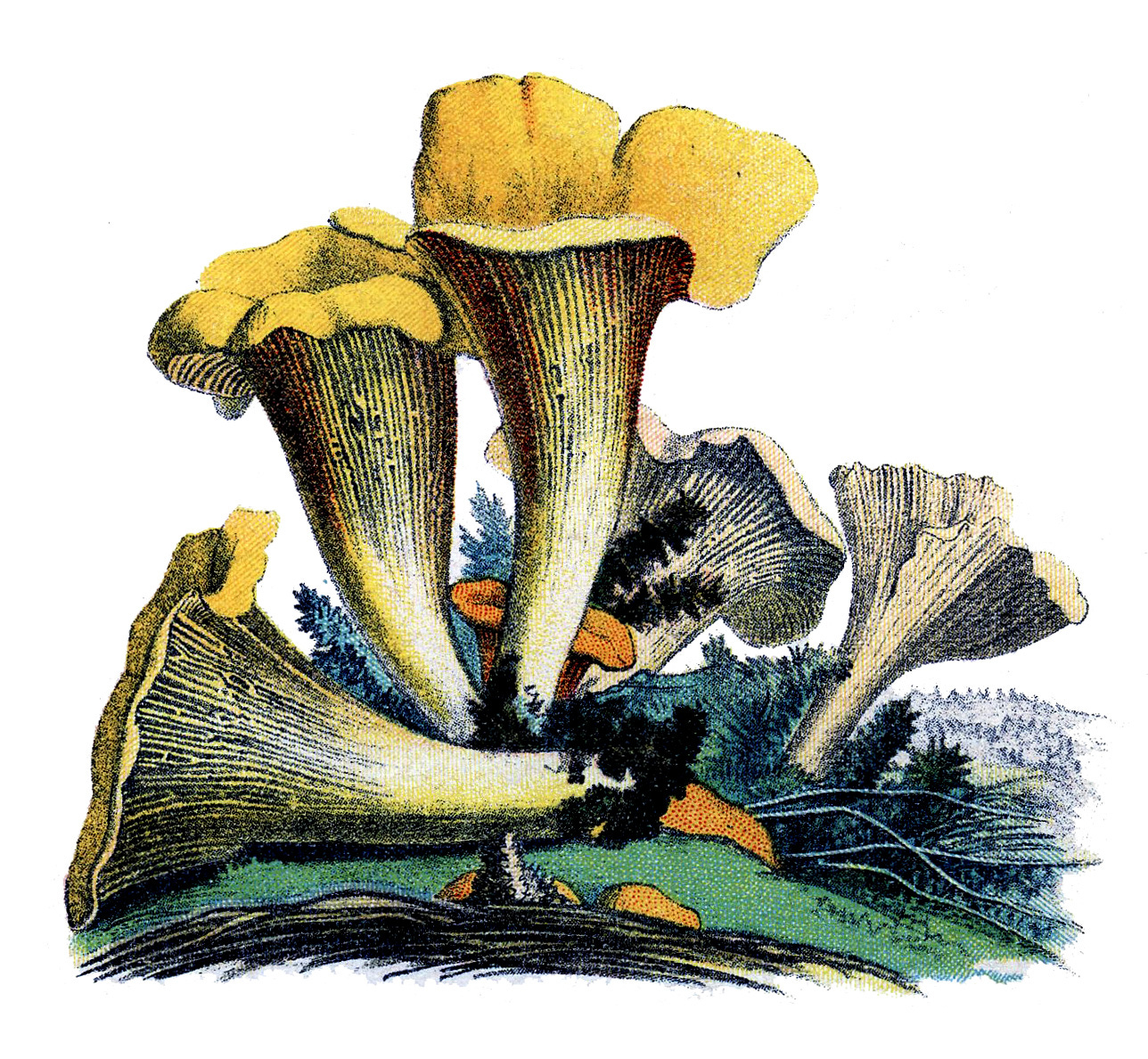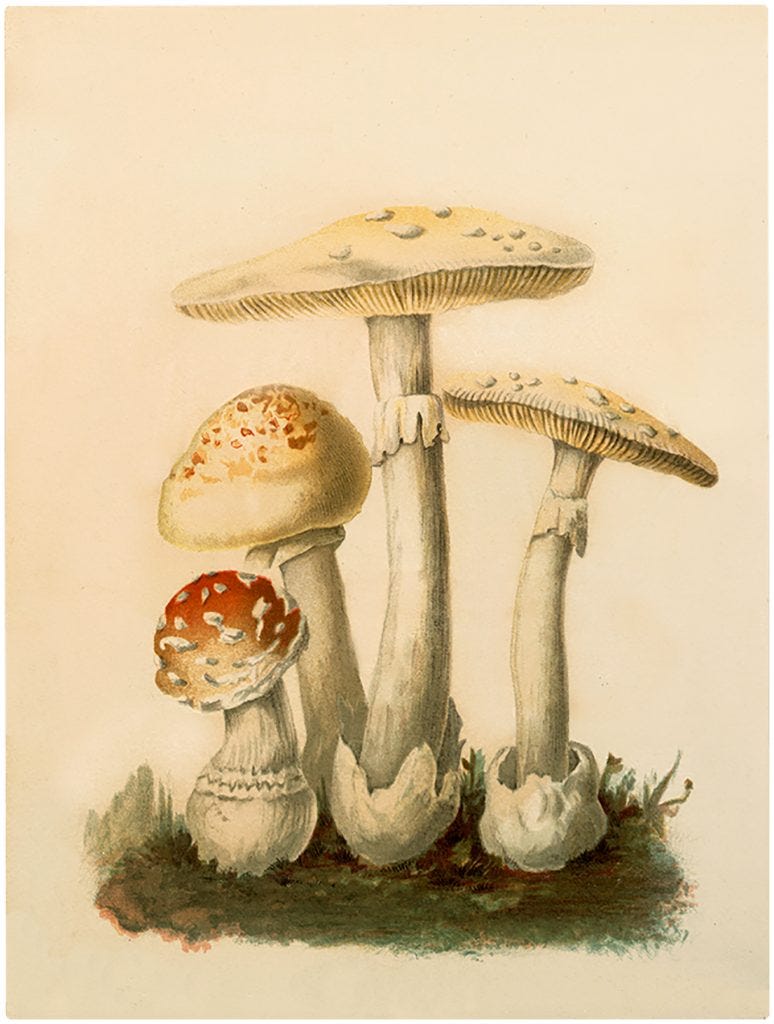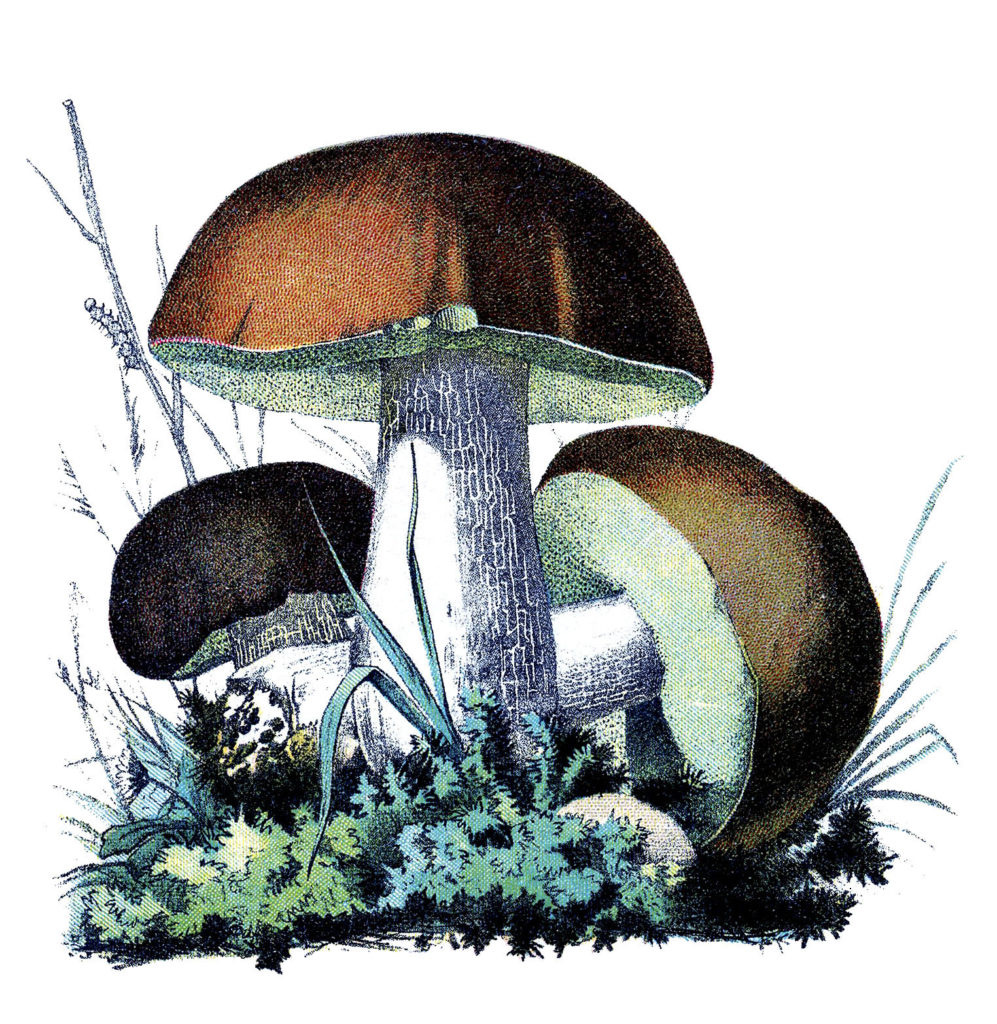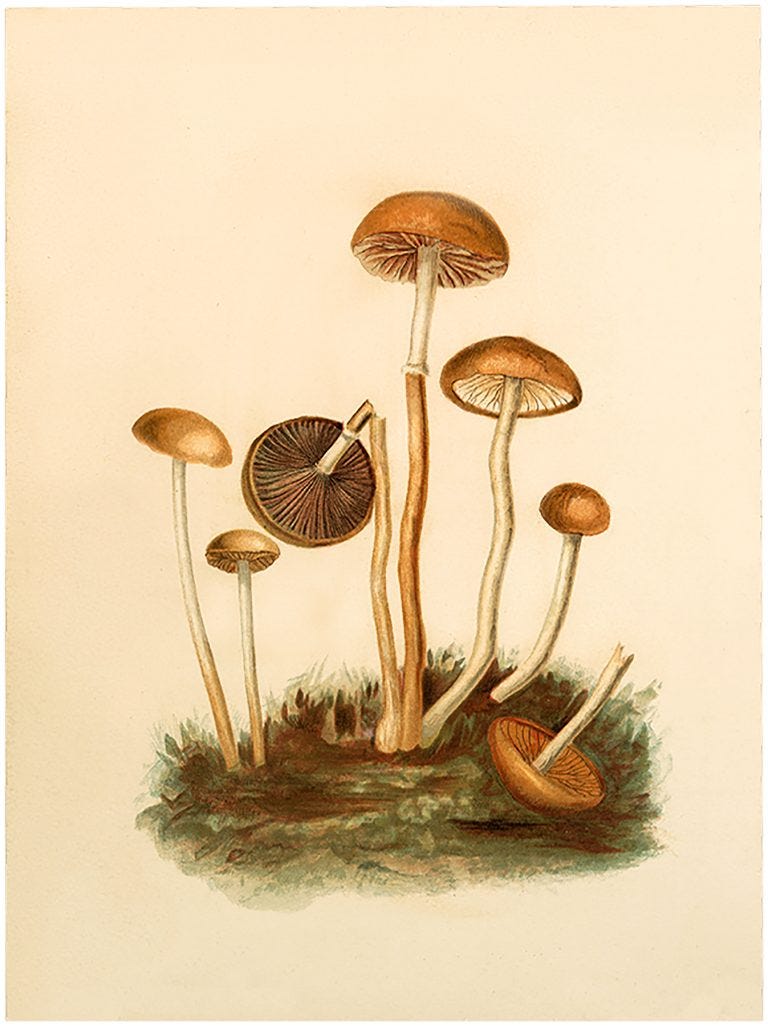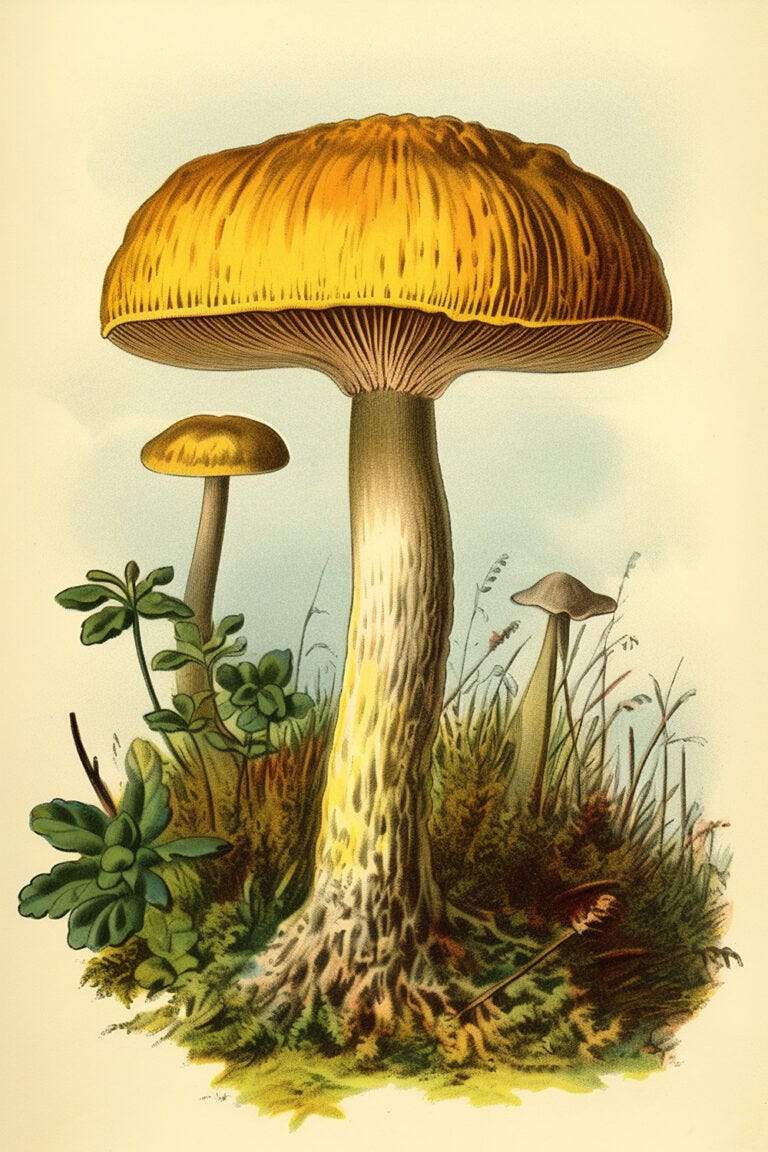Grant had become obsessed with the disenchantment of the world. Indeed, it had been on his mind ever since he’d read an article in an online Catholic magazine that used the phrase to sum up the overreliance on rationalism (and denial of the metaphysical) that came about with the rise of modernism.
Now, Grant was not hoping to catch glimpses of sprites and pixies around every corner nor was he worried about the overall godlessness of humanity. He kept his focus on his particular religion, which he believed to be better equipped at combatting disenchantment because it combined the rational with the spiritual.
This kind of obsession was something that happened to him periodically. He usually kept things in check. Beefing up his family’s emergency food supply, for example, without going full prepper or learning to build his own computer without spending thousands on high-end components.
Naturally, he sought out other like-minded individuals with which to share, test, and respectfully debate his concerns and observations, although he did more asking of questions than sharing of conclusions. The internet had taught him to not be too open about his beliefs, even when—especially when—his co-religionists were involved.
Things intensified when he found the transhumanists. But the more time he spent on their forums, blogs, and subreddits, the more he became convinced that their techno-utopianism was unwarranted. They focused on technologies as a means of transcendence. Grant thought that was simply bowing to rationalism and didn’t understand why they were so uninterested in the spiritual, in the miraculous. What if what the world needed now was not biohacking or some hoped for technological singularity, but rather spiritual technologies?
Grant did not voice this thought to the transhumanists and struggled to wrap his head around what that would really mean, but the idea lingered in his head as the occasional flight of fancy when sitting in Sunday School or the kind of work meeting where, for some reason, everyone needed to be present while the vice presidents debated without making any decisions.
The more he thought about it, the more he realized it was a rather simple equation: the spirit is what animates life and spirit is equal to light and truth and intelligence. And since mortality is a veil of substance wrapped around spirit (and intelligence), that means adding more light and truth could cultivate such spirits/intelligences, could coax them towards greater intelligence, to a fuller progression.
He decided to put this theory to the test when his wife received a basil plant at church for Mother’s Day. It was a pitiful thing, all spindly stems and underdeveloped pale leaves as if it had sat unwatered in someone’s garage for a week or two. His wife was not interested in coaxing it back to life, but the kids were, and they enlisted his help. Grant showed them how to water it, cautioned them not to overwater it, gave it a bit of plant food, and found a sunny spot in the kitchen window for it.
Although he enjoyed exploring the deeper doctrines, Grant was a big believer in the Sunday School answers, so early in the morning and late at night while the rest of the household was asleep, he began to creep out into the kitchen and whisper prayers and sing hymns over the basil plant. A simple application of spiritual technologies, to be sure, but the best place to start.
Within just a few days, the basil plant was looking much better, and within a couple of weeks it was producing lush, lustrous leaves. The kids were overjoyed and, to his and his wife’s surprise, wanted to try the basil, and liked it, and they ordered an extra-large cheese pizza the next Saturday evening just so they had something to top with the leaves.
The problem was that while the basil plant had rebounded nicely, it wasn’t clear to Grant that it had exceeded a normal timetable. Perhaps it was just the water and sunlight doing their thing. He needed a better experiment, so he began sprouting seeds at home.
For this project he enlisted his children. All it took was to subtly suggest to the oldest that she pray for the seeds and once she did, the others also had to. Their prayers were simple but fervent. It sometimes seemed to Grant like he could see the light flowing from their lips to the mason jar on the kitchen counter.
As it turned out, sprouting seeds was too quick of a process for him to judge whether the prayers and his late night, low, out-of-tune hymns made a difference in the growth rate; however, the sprouts that resulted from this experiment were sweet, nutty, thick, and crisp and lacked that slight aftertaste of decay he associated with the sprouts his mom would sometimes put on sandwiches when he was a kid. They were vastly superior to those you could buy from the supermarket. Even his wife complimented their flavor and texture. She said they were almost worth the effort and use of counter space.
Grant was delighted by this. How could it be anything other than the fruits of the spirit made manifest in physical form?
Now, for all his interest in doctoral speculation, Grant was a simple guy, and he knew it. At times he was ashamed of his conventional tastes in music, food, and entertainment. He often wondered if his interest in the re-enchantment of the world was less about some yearning for more everyday connections with the spiritual and the divine and more about simply making his life a little more interesting. What he needed, then, was to take both the everyday and the interesting to the next level: he needed to apply his spiritual technologies to something darker, danker, earthier.
Grant had never been fond of mushrooms. He tolerated them as pizza toppings and in pasta sauces, but he picked them out of salads and avoided dishes where they were a main component. But he liked the idea of maybe finding a kind of mushroom he took real pleasure in. For all that he was happy to be a simple man with simple tastes, there was that part of him that yearned for a slightly more abundant life. After all, the purpose of mortal life was to gain experience, and while certain experiences were sinful or seemed unpleasant, surely learning to enjoy gourmet mushrooms was within reach, especially if they took to the influence of the Holy Spirit as robustly as the sprouts had.
After going down an online rabbit hole of DIY solutions, Grant decided to just order a kit that consisted of a small log and oyster mushroom plugs. He was pretty sure the log method would take to the spiritual technologies better. Not so much because it seemed tidier than the trays of potting soil and manure, but because it had more of a definite form, like the sprouts in their bottle.
The tracking info for the kit arrived just as the rest of the family had begun to murmur about all the sprouts in their diet. Grant was more than ready to move onto this more ambitious experiment anyway. There’s only so much one can do to encourage the intelligence of sprouts.
The day it was to be delivered he propped his cell phone up next to his laptop so he could keep an eye on the exact delivery window. When it arrived he bounded out of his home office, answered the door, signed for the package, which thankfully had been boxed in the generic branding of the online store where he’d purchased it, mumbled to his wife something about a new woodworking project, and took it down to his small workshop in the basement which wasn’t technically off limits to the rest of the family but was so cluttered and boring as to practically be so.
After inspecting it, reading the instructions, and re-watching his curated playlist of videos about growing mushrooms at home, he realized that the problem with mushrooms was they lacked a full understanding of their divine natures. Perhaps that’s why he had never found them tasty. They had no purpose or aspirations beyond transmuting decay into their pale, spongy bodies: a lovely, useful, needed natural process to be sure, but one tied too closely to the worst thing about mortality—death.
Clearly, they simply needed a little love, a little faith, a little hope, a little light, a little intelligence, a little truth, a little more life. After all, evolution wasn’t actually about the survival of the fittest or the random freak occurrences of mutation. Not at all. Indeed, he was pretty sure evolution was God’s mechanism for individuals, families, species, societies etc. to figure out their divine potentials—to work towards what was actually possible to achieve in this mortal world or, to put it in Gospel terms, to more perfectly fill the measure of their creation.
The question was how he could improve his spiritual technologies so these mushrooms grew beyond their natural selves. His prayers and those his children had worked with the sprouts, but the mushrooms would need more than that. How was he going to scale things up?
The obvious answer was the Internet.
Grant removed the log from its packaging, set the plugs containing the mushroom spores aside, cradled the log in his arms, gave it the name of Ruggles, and blessed it to fill the fullest possible measure of its creation—not by the power of any priesthood or divine authority, but only in the spirit of increasing spiritual knowledge in the world.
After he finished, he had a moment of panic when he realized it wasn’t the log he needed to name but the mushroom spores; however, the crisis passed when he remembered that in order for the mushrooms to grow, they would need to bud out of a deep matrix of mycelium infesting the log and so, essentially, to name one was to name the other.
Once Grant was committed to this plan, he went online and enlisted the transhumanists, preppers, and the members of all the other communities related to his various hobbies and intellectual interests over the years to help Ruggles, who he represented as a foster pet who was having a hard time right now, explaining that he’d prefer not to go into details yet, but Ruggles could use your prayers, well wishes, good vibes—whatever you can provide.
And everyone did. The messages and comments poured in. People became very invested in Ruggles’s well-being, and Grant spent a considerable amount of time encouraging this investment while skirting any specific details about the log itself.
Despite all that, the mushrooms didn’t seem to grow any faster than the timeline spelled out on the package. And when they finally did start to bud, they were disappointing: thin pale things seemingly on the trajectory towards exactly the kind of mushroom that Grant had no interest in eating.
Grant was concerned at first and began to wonder if it was a question of proximity. Maybe all the prayers and vibes from the tenuous but persistent relationships he’d developed over the years on the Internet just weren’t powerful enough. Maybe they were mighty in volume but not intensity. However, that didn’t quite make sense to him. If it was all a question of spirit or light or truth, well, shouldn’t that be able to penetrate even the thick walls of the workshop in his damp basement?
And so Grant decided to do more than simply persist in faith. First, he redoubled his own efforts, praying specifically and fervently for the mushrooms to respond to the spiritual outpouring being directed towards it. He moved the wireless speaker from his office to the workshop and played conference talks through it when he wasn’t there. Most importantly, he spent more time in the basement, singing hymns and reading scripture out loud, even just talking to Ruggles, explaining his theories about spiritual technologies and the loss of enchantment in the world and his desire to bring, maybe not miracles, but a little more spiritual power to the mundane.
He also posted an update on all his various social platforms and forums and blogs, saying that Ruggles hadn’t turned the corner yet and so he’d be grateful if everyone enlisted their friends and family members for a great outpouring of prayers and vibes and good thoughts. Most folks were only too happy to join in to help a pet in need. Some even offered monetary donations, which Grant politely declined.
Of course, Grant also wondered if his white lies were an impediment to the spiritual power’s effectiveness. But he didn’t think so. Life was life. And he had grown fond enough of Ruggles to genuinely consider it a pet.
Two days after he posted the update, the pale white mushrooms growing out of Ruggles had a slight green-ish blue tint to them and were beginning to develop dark, lacy ruffles around the edges of the caps. Then the next day, if he looked carefully, he could see pale pink dots spotting the crowns of the mushroom caps.
Grant kept up his efforts.
As the days went by, the mushrooms began to thicken and broaden and change in color until they looked nothing like oyster mushrooms. They were fat little creatures, their caps dark brown and scalloped, iridescent with blushes of magenta, spots a deep blue that was almost purple, and little veins of green that almost glowed. They were cool, almost damp, to his hesitant touch, spongy but firm, and when he leaned in close they seemed to pulse, although Grant couldn’t tell if that was just a trick of his eyes or his ears—or both—for when observed from afar, they were quiet and still.
This delighted Grant. They were beautiful. Almost tasty looking. But he also did his due diligence. He was, after all, a believer in both the scientific and the spiritual. He went online and used every resource he knew of to find mushrooms that looked like the mushrooms that Ruggles was growing. There were none.
He sat in his workshop for a while and thought about the process he had just gone through. About all the prayers and other spiritual exertions. About how he didn’t much like eating mushrooms. Whether he was going to tell his wife about this project, and if so, when. And then there was nothing left to do but seek confirmation. Not the fervent, long prayers that led to the development of Ruggles, but a simple, searching one asking to know if the mushrooms had grown to their fullest divine potential.
The answer slowly grew on him like fuzz, delicate but certain. It was time to taste the fruits of the harvest of his application of spiritual technologies.
But gratitude comes first, so Grant went back on his social platforms, and forums, and blogs and thanked everyone for their efforts on behalf of Ruggles and reported that Ruggles was doing much, much better. Then, he opened his favorite utility knife, and, hand trembling slightly with both doubt and anticipation, sliced one of the smaller mushrooms from Ruggles. There was little give or snap to it, and when he was done it lay like a snail or a pat of butter in his hand, not oozing, but threatening to.
His mind lingered on the potential health risks of eating unidentified fungus for a moment, but Grant trusted in both his research and his process. What could be more sanctified for consumption than this mushroom, odd though it was? Had he not done everything and more to make it more than what it had originally desired to become?
He brought it to his mouth as if to taste it, but then sniffed it. It gave off a slightly fruity, slightly nutty aroma, much more fragrant than what he vaguely recalled a normal raw mushroom to smell like. He said a quick prayer, asking God to bless the mushroom to not just nourish and strengthen his physical body, but also his spirit and his intellect, and then popped it in his mouth.
The texture was rich, luscious, like a ripe fruit or some strange vegetable that had roasted without being roasted. And the flavor was intense, almost indescribable, hints of raspberry and chocolate and hazelnut and cinnamon but somehow more vegetal and earthy.
He chewed, although it didn’t need much chewing, then swallowed, and as it slid down his throat he felt his whole body slide with it as if he was both rising and falling at the same time.
Before he could freak out, for Grant had never in his life partaken of any substance that could damage his spirit or alter his mind—not even caffeine—he found the faith to let go. And he saw that even in his damp workshop, the world was indeed enchanted, filled with lights and colors and pulsing energies.
And as he stepped out into the basement and spun around, absorbed in what he was witnessing, he came to the knowledge that every part of the world, no matter how small, contained some light and truth, some yearning toward eternity, toward God.
That the pathetic, heavy weight of living in mortality was less of a veil, less of a burden, and more of an unnecessary accumulation of doubt and sin and ignorance and mistrust. That there was an abundance in the world, that there was a way for all beings and objects to fill the measure of their creation more perfectly.
That, most importantly, Grant had been right. That his experiments in spiritual technologies proved he was right.
And, as he staggered to the steps leading out of the basement, that Ruggles was going to change everything.
William Morris writes, edits, and writes about Mormon literature. His most recent work is The Darkest Abyss: Strange Mormon Stories, which was published by BCC Press. His work can be found at: motleyvision.org.
This post is part of Wayfare’s Foray into Fiction for the month of October.





